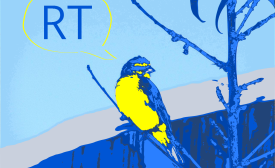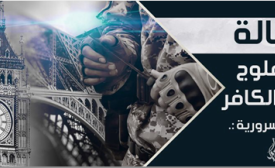digital diplomacy
It is this particular feature of RTs, the capacity to stimulate engagement, that recommends it as an appealing metric for assessing the impact of digital diplomacy. The more RTs, the broader the MFA’s engagement with its target audiences and hence the more effective the digital strategy.

Parsing the "retweet" factor.
Above all fields of study, science and technology is the fastest in terms of change and development. And as we see the year 2016 in horizon, we can expect numerable changes on the technology we experience today – changes that could impact our lives for better or worse. [...] It can be used for conversations and other systematic functions. Organizations may use bots to sort tag articles in real time, manipulate social media activities, surveillance and digital diplomacy.
Saudi Arabia is taking a "soft power" jab at its regional rival Iran this week — a news website in Farsi, the language of Iran. It launches Thursday and the Saudi government expects to eventually start a Farsi-language TV channel as well. The step into soft power is new for the wealthy Kingdom, more known for opening its checkbook to gain influence.
As the public grapples with images of violent extremism advocated by the Islamic State group, UCLA students have developed a website and social movement aimed at slowing its spread by countering recruitment strategies. [...] The result is Safe Spot, which is designed to foster ideals of acceptance, safety, community and ultimately discourage isolated individuals from joining extremist groups.
Despite increasing efforts by western governments and social media providers to counter ISIS online, ISIS continues to produce and disseminate large quantities of ideologically inspired audio visual content and information.

Ali Fisher on ISIS' social media savvy.
Politicians and some technologists say that [ISIS accounts], and hundreds just like it, show how Silicon Valley’s efforts to crack down on the use by terrorists of social media have been toothless [...] On Sunday, Hillary Clinton [...] called on tech companies to become more aggressive. “Resolve means depriving jihadists of virtual territory, just as we work to deprive them of actual territory,” she told an audience [...]







